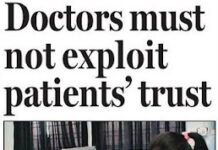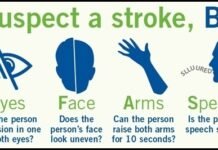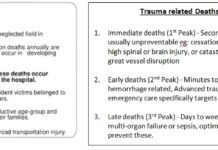The internet has impacted virtually every aspect of our lives. It has also revolutionized the way we obtain information. Everything is readily available at your fingertips. One no longer has to visit a local library or refer to an encyclopedia. Strangely, the Internet has also changed how we deal with illness and well-being. An increasing number of individuals are looking up their symptoms online and making rare and absurd diagnoses!
Cyberchondria refers to the tendency to self-diagnose health problems online that lead to anxiety and panic. Cyberchondria is a significant cause of concern among healthcare practitioners. Often, patients will present doctors with a pile of printouts with pictures and symptoms of potential diagnoses. This may also distract a doctor and take attention away from the actual disease. There is a lot of erroneous information on websites and people “researching” things can often draw wrong conclusions. A Google search for “headache” might turn up a diagnosis of brain cancer while “fever” might yield a diagnosis of HIV/AIDS! Self-diagnosis tends to undermine the doctor-patient relationship. A doctor may perceive that the patient does not trust his judgement and expertise. This may create a hostile environment which may ultimately be detrimental to the overall well-being of the patient. Some doctors might view such patients as a ‘nuisance’ and may not fully address the patient’s concerns.
Self-diagnosis also causes a lot of unnecessary anxiety. Patients may overlook serious symptoms and give more importance to trivial ones. On the other hand, a simple condition may be blown out of proportion. Patients may think their condition is more severe than it actually is. Taking medicines without consulting a doctor may lead to dangerous side effects. Patients are often in a state of denial about their symptoms and avoid seeing a doctor because of inaccurate information obtained from the internet.
Most health related websites on the internet provide inaccurate and misleading information. Patients must only refer to websites that are managed by reputed organisations like the World Health Organisation or Center for Disease Control. Google India has teamed up with Apollo Hospitals to provide accurate and verified information for health related google searches where in patients are constantly urged to seek the advice of a qualified healthcare professional. Several websites by organisations like NIH, Mayo Clinic, etc. have been written for a non-technical audience. Patients can refer to these verified websites to obtain more information about their condition. Information from Forums, Wikipedia and other channels on the internet may be inaccurate and should be avoided at all costs. Nothing can replace consulting a healthcare professional.



























